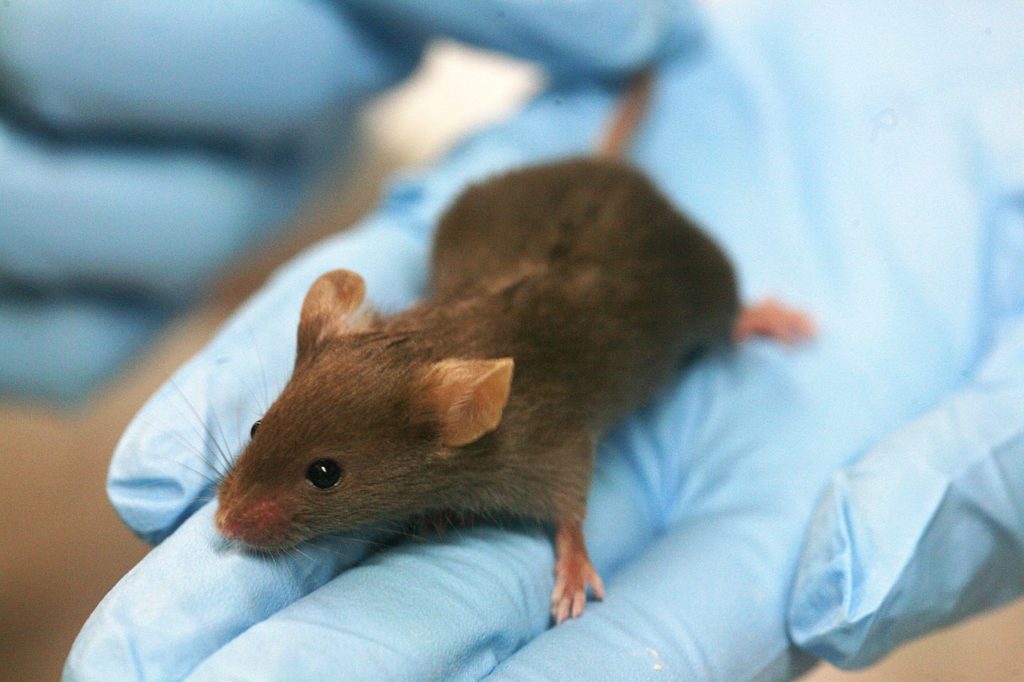
This is the first in a series of posts that will explore the interaction between ethics and the law of intellectual property. This first post will look at the ethics underlying intellectual property law, and the extent to which ethics has shaped exceptions to rights in intellectual property law.
Intellectual property and ethics may seem strange companions to some practitioners, but the law of intellectual property is philosophically rooted in ethical considerations. George Bell, a Scottish advocate in the early part of the 19th century, described the moral imperative behind intellectual property protection:
Of all things, the produce of a man’s intellectual labour is most peculiarly distinguishable as his own; and the Patents, or the statutes on which Copyright now rests, are intended not so much to create a right, as to protect it against invasion
George Bell, Commentaries on the Law of Scotland
Bell’s perspective reflects the philosophical conception of intellectual property originating in the work of John Locke, writing in his Second Treatise on Government. Locke’s labor theory of property stated that intellectual property should belong to its creator, as where an individual had applied their own effort and creativity to create something, they had an entitlement to benefit from their creation.
While the Lockean perspective has been the subject of substantial (and well-founded) criticism it still resonates in modern intellectual property law. It can be seen in the author’s right to attribution, or the inventor’s right to be named on a patent.
IP as a human right?
Absent other considerations, rights in intellectual property reside with the creator, generally without discrimination as to nationality. The obligation to respect the act of creation of intellectual property can be seen as a matter of human rights. Article 27(2) of the UN Declaration on Human Rights reads:
(2) Everyone has the right to the protection of the moral and material interests resulting from any scientific, literary or artistic production of which he is the author.
The UN Declaration on Human Rights (UNDHR) was adopted in 1948, and reflects a significant international discussion on the fundamental rights held in common by all people.
The discussion between international delegates prior to the adoption of the text reflected uncertainties about the relative importance of such a right next to the more fundamental issues of equality, liberty, security and freedom from persecution. The Australian delegate, Alan Watt, considered that “the indisputable rights of the intellectual worker could not appear beside fundamental rights of a more general nature, such as freedom of though, religious freedom, or the right to work”
Nevertheless the provision on intellectual property was incorporated. It is perhaps unsurprising that Article 27(2) of the UNDHR has had such little attention in litigation.
Intellectual property law benefits from substantial international coordination, for example the Paris Convention on the Protection of Industrial Property now has 196 signatories. The Paris convention guarantees minimum standards for the protection of intellectual property, and therefore there has been no need for individuals to assert their rights under the UNDHR. In fact I can think of no obvious situation in which the need to do so would arise in a country like the UK, save perhaps inappropriate use of crown licence.
Ethics in IP Statutes – Part 1
We have seen the ethical issues underlying recognition of the rights of the creator of intellectual property, but how do other ethical considerations shape intellectual property law?
The most obvious example is the exclusion on the patenting of immoral inventions, to be found in Article 53(a) of the European Patent Convention, and accordingly propagated in national law.
Outside of Europe the morality exclusion can also be seen in the Paris Convention and in Article 27.2 of TRIPS:
“Members may exclude from patentability inventions, the prevention within their territory of the commercial exploitation of which is necessary to protect ordre public or morality, including to protect human, animal or plant life or health or to avoid serious prejudice to the environment, provided that such exclusion is not made merely because the exploitation is prohibited by their law”.
We will leave over the issues regarding plant and animal tissues for next time. Looking to the ideas of public order and morality, how have moral concerns been applied by the Courts? In short, the answer is inconsistently.
Immoral Inventions
It is helpful to look over the pond to the US Federal Circuit decision in of Juicy Whip v Orange Bang. Mainly because it is one of the best case names of all time.

In Juicy Whip the court recognised the previously inconsistent attitude of the US Courts towards immoral inventions. US Courts had previously wielded a moral scythe to reject the patentability of inventions that could only be used for illegal acts under the guide of a lack of utility.
These inventions included a variety of devices, such as gambling machines, a machine to deceptively improve the appearance of tobacco leaves, and the device in question in Juicy Whip, which was intended to give customers the impression the soft drink they had purchased was fresh in the machine, rather than sitting in separate unmixed tanks underneath.
The Court determined that it was not a Court’s duty to police deceptive trade practices through the patent office, and that it was for the government to legislate specifically for excluded matter, as the government had done in relation to atomic materials.
It is amazing in a sense to think that this was a new legal stance in 1999. Particularly when patent law in the US had seen the grant of patents for inventions like antipersonnel land mines. The question of immorality is highly subjective; it is perhaps unsurprising that such issues would be left to the legislators. More on this next time in relation to the biotech directive and Brüstle vs Greenpeace.
Meanwhile in Europe the EPO states in its guidelines that the Article 53(a) exclusion “is likely to be invoked only in rare and extreme cases” saying that “The purpose of this is to deny protection to inventions likely to induce riot or public disorder, or to lead to criminal or other generally offensive behaviour… Anti-personnel mines are an obvious example”

So are anti-personnel mines okay, or not? The truth is that morality is not subject to universal standards. Personally, I would hope we could all agree to dispense with land mines, if not gambling machines.
The standards of what constitutes an immoral invention will clearly vary around the world. In case T-356/93 the EPO’s technical board of appeal stated:
The concept of morality is related to the belief that some behaviour is right and acceptable whereas other behaviour is wrong, this belief being founded on the totality of the accepted norms which are deeply rooted in a particular culture. For the purposes of the EPC, the culture in question is the culture inherent in European society and civilisation.
As the US Federal Circuit recognised, it is perhaps not for patent lawyers to determine the state of morality in any given nation.
We will consider further next time the inherent risk this poses in a territorial system for the protection of intellectual property: that those areas with the most permissive moral standards will attract investment in ethically questionable innovation.
Private Use
Before moving on to talk about the biotech directive and the patentability of naturally occurring substances, we can turn briefly to private use.
One of the provisos to the Lockean philosophy of intellectual property law is that the grant of intellectual property rights should not remove anything from the commons. There is a great deal of debate about how this proviso applies to issues of discovery of naturally existing things, but there is a clear example of it’s application in the right to continue private use of a later patented invention.
In the UK this provision is phrased as an exception to the patentee’s rights on infringement:
Section 64, Patents Act 1977
(1) Where a patent is granted for an invention, a person who in the United Kingdom before the priority date of the invention—
(a) does in good faith an act which would constitute an infringement of the patent if it were in force, or
(b) makes in good faith effective and serious preparations to do such an act,
has the right to continue to do the act or, as the case may be, to do the act, notwithstanding the grant of the patent; but this right does not extend to granting a licence to another person to do the act.
In the UK this exception has not given rise to much case law. In other countries it may have greater relevance, in particular in relation to indigenous knowledge. The extent to which modern medicines are derived from natural products is commonly underestimated. For instance, among anticancer drugs developed between 1940 and 2002 around 54% were derived from natural products or rleated knowledge. These include, for example, paclitaxel, the subject of recent SPC shenanigans. Paclitaxel is purveyed by Abraxis Biosciences (now part of Celgene). Paclitaxel was derived from Taxus Baccata, a.k.a. the English yew tree.

While I’m not aware of any Yew-based English folk remedies, it is important that new patents don’t take anything away from the commons. Such protection may become more important if researchers increasingly look to nature or traditional practices for inspiration in drug discovery.
Next Time
The next post will look at the ethical concerns involved in the patenting of plants and animals, particularly in light of the EU’s biotech directive. Expect tomatoes, broccoli, mice and micropigs.
Part Two now available – Read here
After that we will look at whether the law of intellectual property is in conflict with other human rights, and how ethical considerations might shape the future of intellectual property.
If you have any comments or suggestions please do let me know – some of this discussion will feature at my presentation next month at the Data Science and Right to Science Conference hosted by the Dubrovnik International Bioethics & Science School.
Image Credits
Header: Rama [CC BY-SA 2.0 fr (https://creativecommons.org/licenses/by-sa/2.0/fr/deed.en)]
Pixabay
US MoD – Public Domain
One thought on “Is there a role for ethics in Intellectual Property?”